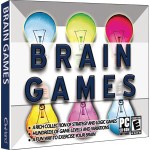Psychology
Computers are built to preserve information, not to be creative, and certainly not to be random. Therefore it is a problem to get a really random number into a computer when you need one. A common source, looking at the hundredth of seconds in the computer's clock, is not all that good as it leads to predictability if you pull two numbers from the hat with a recurrent time interval between them. You really need to link the computer to something non-digital if you want real randomness.
A legendary 80s science fiction computer game, Elite, used pseudo-randomness to generate its world. The game…
From SCONC:
Thursday, March 5
7 p.m.
What Good is it to Feel Good? The Science of Positive Emotions
From our "what the world needs now" file, Dr. Barbara Frederickson, head of the Positive Emotions and Psychophysiology Lab at UNC will share thoughts from her new book, Positivity. You can strengthen relationships, relax the mind and relieve stress by thinking positively. Part of the Current Science Forum at Morehead Planetarium, UNC.
Both objects and behaviour can be described as disgusting. The term could equally apply to someone who cheats other people out of money as it could to the sight of rancid food or the taste of sour milk. That's not just a linguistic quirk. Some scientists believe that the revulsion we feel towards immoral behaviour isn't based on our vaunted mental abilities, but on ancient impulses that evolved to put us off toxic or infectious foods.
It seems that your facial muscles agree. Hanah Chapman from the University of Toronto has found that both physical and moral disgust cause the levator labii…
During elections, what affects our decision to vote for one politician over another? We'd like to think that it's an objective assessment of many different factors including their various policies, their values, their record and so on. But in reality, voters are just not that rational.
In the past, studies have shown that people can predict which of two politicians will win an election with reasonable accuracy based on a second-long looks at their faces. With a fleeting glance and little purposeful consideration, people make strong judgments about a candidate's competence, that can sway…
When it comes to discussing suicide bombers, the controversial topic of religion is never far behind. Scholars and pundits have proposed several theories to explain why people would sacrifice their lives to take those of others, and conjectures about religious views seem easy to defend. After all, anthropologist Scott Atran estimated that since 2000, 70% of suicide attacks have been carried out by religious groups, and Islamic ones in particular.
But for all the speculation, very few people have examined the supposed link between religion and suicide attacks with an objective scientific eye…
A sixth of a GCSE in 60 minutes?:
Later this year, pupils from Monkseaton high school will file into their new lozenge-shaped school and take their seats before a giant video wall in a multipurpose hall. Here, they will receive a unique lesson: an intense PowerPoint presentation, repeated three times, and interspersed with 10-minute breaks of juggling or spinning plates. After one hour of this study, the pupils will be primed for one sixth of a GCSE. In theory, following this "spaced learning" method, a teenager could sit a GCSE after just three days' work.
It is a vision of the future that…
How religion generates social conservatism:
You could make a reasonable case that pencils have a purpose, but pencil shavings just exist. But what about elephants? Religious people and children are, of course, more likely than non-religious adults to say that animals exist for a purpose. But what about men and women? Black people and whites? Rich and poor? Arab and Jew? Do these exist for a purpose? And is it possible for one to become another? Gil Diesdendruck and Lital Haber of Bar-Ilan University in Israel decided to find out what children think.
Dangerous concept; successful execution: From the mediea team at Small Mammal, a cute video story that deconstructs a cute YouTube video to look at the science of cuteness.
Somebody run tell Liz Spikol!
var gaJsHost = (("https:" == document.location.protocol) ? "https://ssl." : "http://www.");
document.write(unescape("%3Cscript src='" + gaJsHost + "google-analytics.com/ga.js' type='text/javascript'%3E%3C/script%3E"));
try {
var pageTracker = _gat._getTracker("UA-3733673-3");
pageTracker._trackPageview();
} catch(err) {}
I love 'I told you so' moments...Brain games don't do shit.
(this is totally going to come back and bite me in the ass though)
A number of months ago, I made a claim that paying for brain games was a waste of money. I got jumped on pretty hard for that claim - even though there isn't much evidence of their benefits except for perform the brain game itself better after a lot of practice (and maybe a couple other semi-related ones). I've been vindicated now by a meta-analysis of the relevant literature by Peter Snyder of the Brown med school.
Check this out from the press release:
Through a…
In preparing for this issue of Encephalon I got access to the submission email account and realized that I had won 500,000.00 euro! I am in no way going to share this wealth with anyone else since it is my turn to do Encephalon. Here's the proof:
Dear Email ID Owner,
This is to notify you that you have won 500,000.00 euro in our online email Promo Draw in which email ID´s are picked randomly by computerized balloting, Your email address was amongst those chosen for this period.
contact: Dr. Mike Mejia, Accu Online Promotion.
!#$%!#$%@I'mnottellingyousinceIwon.com…
Having trouble with a word puzzle? Suffering from writer's block? Perhaps you're not looking at the right colour...
We encounter many of the colours in our lives under the same circumstances and as a result, we have come to associate certain colours with specific attributes. Red invokes thoughts of action, danger or mistakes because it is a common feature of warning signs and editorial ink. Blue, however, is a more soothing hue, and its presence in both sky and sea have connected it to peace and openness.
These associations aren't trivial ones - they can affect the way we think. In a clever…
I entered into organised skepticism because of anti-science tendencies in academe. Though a member of the Swedish Skeptics since 1997 and co-editor of the society's journal since 2002, I've never been much of a skeptical activist outside academic archaeology. I've written articles and a few letters of protest. But I've visited no spirit mediums, gone to no New Age fairs, crashed no fundie revivals. I have engaged with Teh Woo only in the manner of a sniper. In fact, I hardly ever meet any true believers apart from my New Age mom. But last night I had two such encounters: first one that was…
I always get a kick when people see patterns in noise - especially when it's of the paranoid conspiracy religious type. Pareidolia is an amazing thing!
So onto this peach of a story...
KNIGHTSVILLE, Ind. (WTHI) - Months ago, Rachel Jones was shocked to discover her 4-year-old's baby doll seemed to have a hidden message: Islam is the light.
Imagine her surprise when a game for her 8-year-old daughter's Nintendo DS had the same message.
Rachel said she bought the Nintendo game, Baby Pals, as a gift for her 8-year-old daughter after a good report card.
She had no idea the game also contained…
Review by David Dobbs, from Neuron Culture
Originally posted on: January 25, 2009 10:45 PM
The book opens so thrillingly -- a plane crash, a last-second Super Bowl victory, and a first chapter that comfortably reconciles Plato and Ovid with Tom Brady and John Madden -- that it spawns a worry: Can the book possibly sustain this pace?
"How We Decide" delivers. Jonah Lehrer, -- author of "Proust Was a Neuroscientist," blogger at Frontal Cortex, and (full disclosure) an online acquaintance and sometime colleague of mine for a couple years now (I asked him to take over editorship of Scientific…
It's been a big week. With a simple words, Barack Obama became the first black President of a country whose history has been so haunted by the spectre of racial prejudice. His election and inauguration are undoubtedly proud moments but they must not breed complacency. Things may be changing outwardly, but problems remain.
For a start, it goes without saying that many people, even the most liberal and left-wing among us, still harbour unconscious prejudices against members of other races. These "implicit biases" may be hidden, but their effects are often not. For example, a study published…
From the syllabus:
Why Psychology?!
Psychology 100 is the most popular course at nearly every university and there's a reason why. The science of psychology covers an amazing range of topics. After all, the mind can do many amazing things! Oh yeah, it also fulfils a GenEd requirement ;)
Nearly everyone probably has a different idea of what psychology actually is. That's not surprising since even people who have been in the field for many, many years still disagree what should be a part of psychology and what should not. Psychology covers topics ranging from depression, anxiety, and…
It seems that a brilliant doctor in the UK has come up with an amazing piece of machinery and convinced a famous author to wear it in order to stave off the onset of Alzheimer's disease. Here's the machinery... looks like a mind control device or something - too bad It's not going to work.
According to the news article about this amazing technology:
The prototype anti-dementia helmet, which must be worn for ten minutes each day, was designed by British GP Dr Gordon Dougal.
It works by directing intense bursts of infrared light into the brain to stimulate the growth of brain cells.
Low-level…
People seem inordinately keen to pit nature and nurture as imagined adversaries, but this naive view glosses over the far more interesting interactions between the two. These interactions between genes and environment lie at the heart of a new study by Rose McDermott from Brown University, which elegantly fuses two of my favourite topics - genetic influences on behaviour and the psychology of punishment.
three previous pieces on punishment. Each was based on a study that used clever psychological games to investigate how people behave when they are given a choice to cooperate with, cheat, or…
It's been hypothesized that music may mitigate physical pain, a by-product of many medical procedures, but this has always been hard to test due to the wide range of music preferences. In a recent study that capitalized on mp3 player mania, researchers tested this theory by allowing subjects to listen to their own pre-made play list while immersing their hand in icy water for as long as they could tolerate it. Unsurprisingly, the subjects who listened to music lasted longer than the ones without.
You've just been in a horrific car crash. You're unharmed but the vividness of the experience - the sight of a looming car, the crunching of metal, the overwhelming panic - has left you a bit traumatised. You want something to help take the edge off and fortunately a doctor is on hand to prescribe you with... Tetris.
Yes, that Tetris. According to Emily Holmes from the University of Oxford, the classic video game of falling coloured blocks could prevent people who have suffered through a traumatic experience from developing full-blown post-traumatic stress disorder (PTSD). As ideas go, it's…

